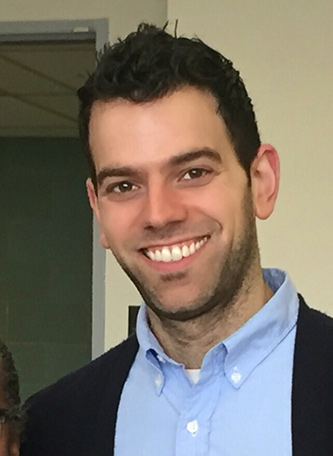Jr. Faculty

Allan Amanik, Department of Judaic Studies
Allan Amanik, Department of Judaic Studies
When Assistant Professor Allan Amanik is not looking for his classes in the puzzling arrangement of rooms and hallways that constitutes James Hall, he may be found in another part of Brooklyn, picking his way through the narrow paths, tombstones, and mausoleums of Washington Cemetery. Amanik, who joined the Department of Judaic Studies in 2014, is an expert on American Jewish history with a specialty in Jewish cemeteries and burial customs. He has written extensively on the topic and is co-editor with the scholar of African-American history, Kami Fletcher, of the forthcoming Till Death Do Us Part: American Ethnic Cemeteries as Borders Uncrossed.
Amanik likes to tell the story of how on a particular Halloween evening, while "looking for the holdings [in Washington Cemetery] of a Jewish immigrant aid society that had purportedly been founded by sex traffickers at the turn of the century," he and a companion missed the closing time and found themselves locked in the graveyard. A cemetery worker refused to open the gates for the trapped visitors, but did point out "a spoke without too sharp a point along the cemetery's high fence." Amanik and his friend climbed the fence and were spared having to spend the night in the company of their ancestors. Along the way they pocketed the same lesson in punctuality and efficiency every historian learns who has relied on the limit hours of a library or archive.
Despite his frequent trips to both cemeteries and archives to do his research, Amanik is often on campus in Flatbush where he enjoys working with Brooklyn College students. He has "been especially pleased with many of the returning students or adult auditors who bring a wealth of life experience to the materials studied." In fact, mixed generations have enhanced the classroom experience. He has found that "younger students really appreciate the perspective [of the older students], and it's been very pleasing to see that kind of intergenerational exchange that is special (and perhaps unique) to campuses like Brooklyn College."
Amanik's praise of his students is matched by his department's appreciation for him. As his chair, Professor Sara Reguer, writes, "As the youngest member of the Judaic Studies Department, Allan Amanik represents the future of the department. In addition to teaching, he is becoming an active member of Faculty Council committees, and has been on various departmental committees since arriving at the college. In other words, he is learning the ropes of how to be a good citizen on all levels. We are very happy to have him."
One very timely topic Amanik covers in a number of courses including Jews of New York and American Jewish History is immigration. He observes of his students these days that they "definitely come to the subject matter with a new and immediate point of reference." He has noticed that students "are able to engage with added interest in our discussions of historic debates over immigration policy or the development of restrictive legislation into the 1920s."
As this historian looks to his own future, he enthuses that he is "excited to continue growing at Brooklyn College, particularly as a teacher." He comments further:
Teaching is definitely a challenging craft to develop, but I find that each semester offers me valuable lessons on how to improve the ways that I present material or promote discussion. Not surprisingly, I am finding that these experiences are helping me to become a better writer and researcher when not focused on the classroom.
His future research projects include an exploration of "early American citizenship through the lens of 18th-century Jewish merchants and their commercial activities across British North America and the Caribbean" and "a kind of micro-history of neighborhood activism among Jewish residents in various parts of Brooklyn, the Bronx, and Queens in the decades after World War II." In an appreciative nod to the college, Amanik remarks, "Both areas have developed out of my teaching here, and I am hopeful that one or the other will lead to my next book-length research project."
There may also be a dog in Amanik's future. He's got a book to read, in preparation, and he is checking with realtors. Life in New York. Amanik would need to get a bigger apartment first, if he wants to realize that dream of having a four-legged companion.
Back to Critical Thinking — December 2017





